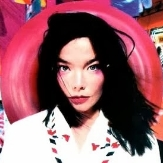cross-posted from: https://lemmy.world/post/7829540
is hard to think of anyone as symbolic of their nation as Björk. The singer has lived away from Iceland over the years – in London and New York, and is often on tour – but when she’s been away she has always felt, she says, like she is “holding her breath”, both in anticipation of return and in memory of purer air. In recent years, since her relationship with the artist Matthew Barney ended in 2013, she has lived pretty much full-time near Reykjavik, where she has witnessed the great surge in tourism to the island, which has risen from a few hundred thousand annual visitors 20 years ago to almost 2 million now.
You couldn’t quantify exactly what proportion of that interest in volcano and glacier is down to Björk’s own one-woman nation branding, but there is no doubt that her wild and whirling music, with its operatic cutting edges of trance and techno, has done much to establish the unique cool of her native island in the eco-traveller’s mind. It is for this reason that when she adds her trippy voice to any environmental campaign, it has ripples well beyond the north Atlantic.
She has been involved in protest for 30 years, she explained to me, “but always in Iceland, where I know it can actually make a change – which later maybe could be an exemplary case [internationally]. We have,” she says, “the largest untouched natural area in Europe and a lot of us feel like guardians of this, you know, the way that you guys are guardians of whatever… ” she laughs. “Brexit, maybe?”
This is not a simple battle between ecology and local economies in Björk’s view – only a few hundred people are employed in the salmon farming businesses. “It’s like two Norwegian billionaires,” she says, exaggerating a little. “They fucked everything up in Norway. And now they have come to Iceland. People say it’s like the bank crash, a few people getting millions and [nobody else] getting anything.” The problem made headlines in August when thousands of the farmed salmon escaped and swam up all Iceland’s rivers. “We were sending divers with harpoons, trying to capture them,” Björk says, but the task was hopeless and she claims the “mutant fish” spread sea lice among the Atlantic stock. (All of these allegations of disease and mistreatment are disputed by the salmon farming companies. Speaking to the Guardian last month, a spokesman for Arctic Fish, the company responsible for the nets from which farmed salmon escaped, said: “We have systems in place that ensure wild salmon are not put at risk. On top of that, our licences have an expiry date. If we do not behave, we don’t get licences renewed.” There is an ongoing police investigation into whether environmental laws have been breached.)

